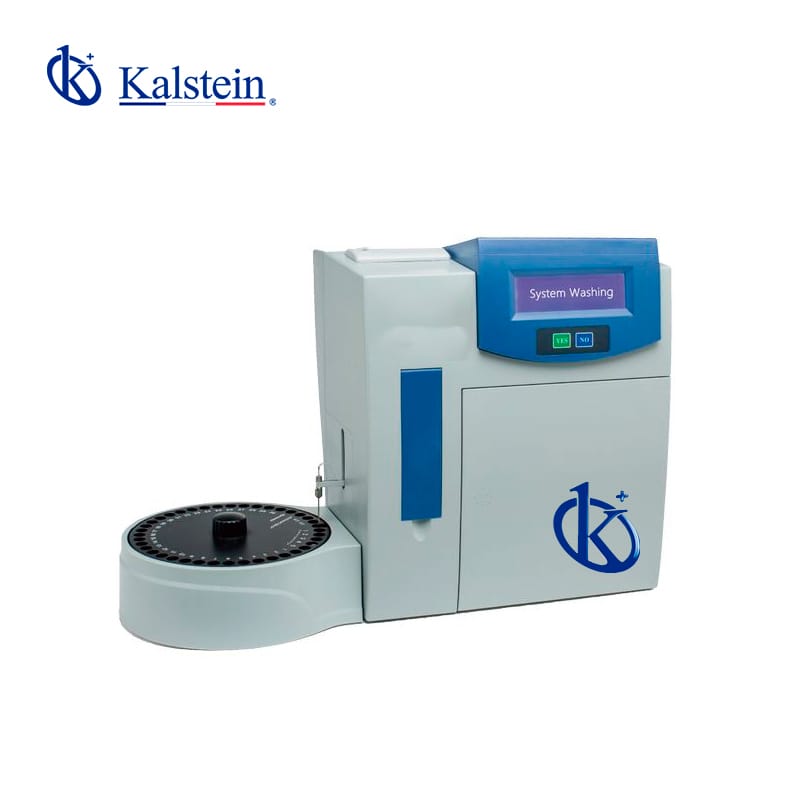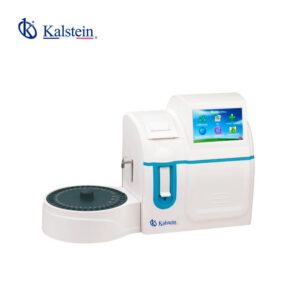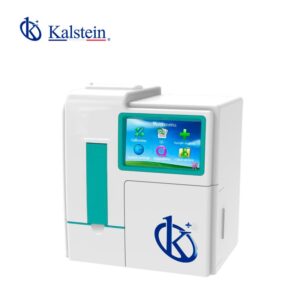Description
The Electrolyte Analyzer YR06396// YR06406 is an advanced medical device engineered to deliver precise and reliable measurements of electrolytes in serum, plasma, whole blood, and diluted urine samples. Its automatic calibration and two-point correction ensure unmatched accuracy, while the integrated software monitors electrical potential to avoid blockages. The analyzer comes equipped with cutting-edge features such as real-time diagnostics, alarm systems, and innovative surge and direct pipeline washing techniques that minimize contamination risks, making it an essential tool for clinical settings requiring rapid and precise results.
Market Price
In today’s competitive market, electrolyte analyzers vary significantly in price depending on their features and technological sophistication. Entry-level models start at around $3,000, while more advanced models, like the YR06396 to YR06406, are priced upwards of $6,000. This investment reflects the exceptional quality and precision these analyzers offer, becoming indispensable in clinical analysis for healthcare professionals who prioritize accuracy and reliability.
Frequently Asked Questions
- What types of samples can this device analyze?
- The analyzer is capable of accurately measuring electrolytes in serum, plasma, whole blood, and diluted urine.
- What is the measurement time?
- Each sample takes less than or equal to 30 seconds to analyze, ensuring rapid processing.
- What is the device’s storage capacity?
- This analyzer can store up to 10,000 test results, making data management efficient for high-volume environments.
Advantages and Disadvantages
Advantages:
- Guaranteed high precision through automatic calibration and correction systems.
- Real-time diagnostic features with proactive alert systems for any anomalies.
- Innovative cleaning methods to significantly reduce blockages and contamination.
- Substantial data storage enables a generous capacity of up to 10,000 test results.
- Energy-efficient design helps in reducing operational and consumable costs.
Disadvantages:
- The initial cost might be prohibitive for smaller healthcare facilities.
- Routine maintenance is required to ensure the device operates at optimal performance.
Product Use in the Field
The Electrolyte Analyzer becomes indispensable in clinical laboratories and hospital environments where quick and accurate results are critical. In emergency situations, its speed and precision make it a tremendous asset for medical practitioners. Moreover, its durability and large storage capacity make it the perfect fit for high-throughput settings, ensuring dependable performance even under intensive operations.
Recommendations
Adhering to the recommended maintenance and calibration schedules is crucial for maximizing the Electrolyte Analyzer’s performance. Use proper washing techniques and maintain suitable environmental conditions to extend the device’s operational lifespan and ensure precise readings. Stocking up on consumables like electrodes and calibration solutions can help prevent unexpected service disruptions. Training personnel regularly on the device’s operation and upkeep will enhance its reliability considerably. For further insight or to request an automated quote customized to your clinical needs, visit the Kalstein Plus platform and revolutionize your analytical efficiency today.
Features
- Automatic calibration and two-point correction.
- Real-time diagnostics with alarm systems.
- Innovative washing methods to prevent contamination.
- Extensive data storage capacity.
- Energy-efficient construction.
Technical Specifications
| Model | YR06396 | YR06397 | YR06398 | YR06399 | YR06400 |
| Sample | serum, plasma, whole blood and dilute urine | ||||
| Analysis Method | ion selective electrode (ISE) | ||||
| Measuring time | ≤30s | ||||
| Sample position | 39 positions (including 5 emergency and 4 functional positions) | ||||
| Storage | up to 10000 test results | ||||
| Printer | Internal thermal printer | ||||
| Interface | RS232 port | ||||
| Temperature | 10-30°C | ||||
| Relative Humidity | 80% | ||||
| Atmospheric pressure | 86~106 kPa | ||||
| Power supply | AC220V±22V, 50Hz±1Hz | ||||
| Power | <120W | ||||
| Test Parameters | K Na Cl | K Na CI TCO, AG | K Na Cl iCa nCa TCa pH | K Na Cl iCa nCa TCa pH TCO₂ AG | K Na Cl Li |




